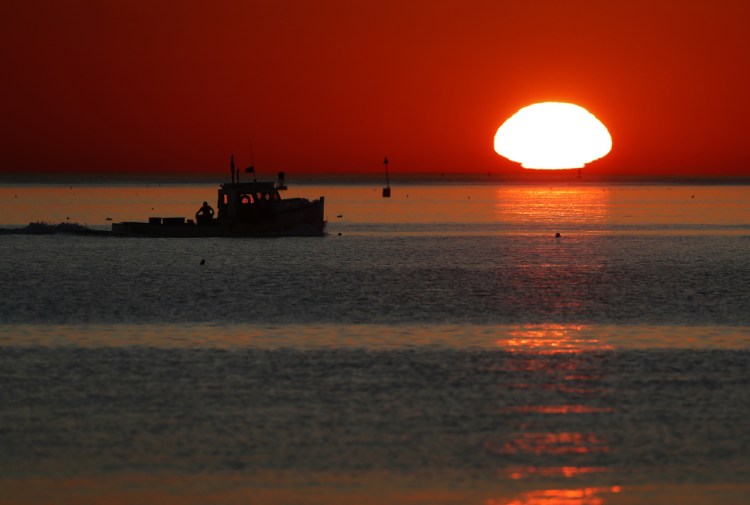The waters off of New England are already warming faster than most of the world’s oceans, and they are nearing the end of one of the hottest summers in their history.
That is the takeaway from an analysis of summer sea surface temperatures in the Gulf of Maine by a marine scientist with the Gulf of Maine Research Institute in Portland. The average sea surface temperature in the gulf was nearly 5 degrees Fahrenheit above the long-term average during one 10-day stretch in August, said the scientist, Andy Pershing, who released the work Thursday.
Aug. 8 was the second warmest day in recorded history in the gulf, and there were other sustained stretches this summer that were a few degrees higher than the average from 1982 to 2011, Pershing said. He characterized this year as “especially warm” even for a body of water that he and other scientists previously identified as warming faster than 99 percent of the global ocean.
“We’re seeing really unusual conditions all over the planet this year. Wildfires and heat waves. Unusual conditions. The Gulf of Maine is part of that story,” Pershing said.
The Gulf of Maine is a body of water that resembles a dent in the coastal Northeast, and it touches Maine, New Hampshire, Massachusetts and Atlantic Canada. It’s the nerve center of the U.S. lobster fishing industry, an important feeding ground for rare North Atlantic right whales and a piece of ocean that has attracted much attention in recent years because of its rapid warming.
The gulf warmed at a rate of about 0.1 degrees Fahrenheit over the past 30 years, which is more than three times the global average, Pershing said. That rate has jumped to more than seven times the global average in the past 15 years, he said.
The warming of the gulf is happening at a time when the center of the U.S. lobster population appears to be tracking northward. America’s lobster catch is still high, but rising temperatures threaten to “continue to disrupt the marine ecosystem in this region,” said John Bruno, a marine ecologist with the University of North Carolina who was not involved in Pershing’s work.
“Warming in the (Gulf of Maine) has been pushing out native species like cod, kelp and lobster, and fostering populations of species typically found in the Carolinas,” Bruno said. “Although it’s an extreme example, it mirrors what we’re seeing across most of the world.”
The gulf has seen temperatures above the 90th percentile for more than five consecutive days this year, which constitutes a “marine heat wave,” Pershing said. It has set 10 daily temperature records this summer after setting 18 over the winter, he said.
The warming is bad news for the rare right whales because it impacts the availability of tiny organisms they eat, said Jeffrey Runge, a research scientist with the Gulf of Maine Research Institute and the University of Maine.
“There are very large, not regional, drivers for this change,” he said. “Until we work on the global drivers of warming, I don’t see any way to stop this.”
Send questions/comments to the editors.



Comments are no longer available on this story